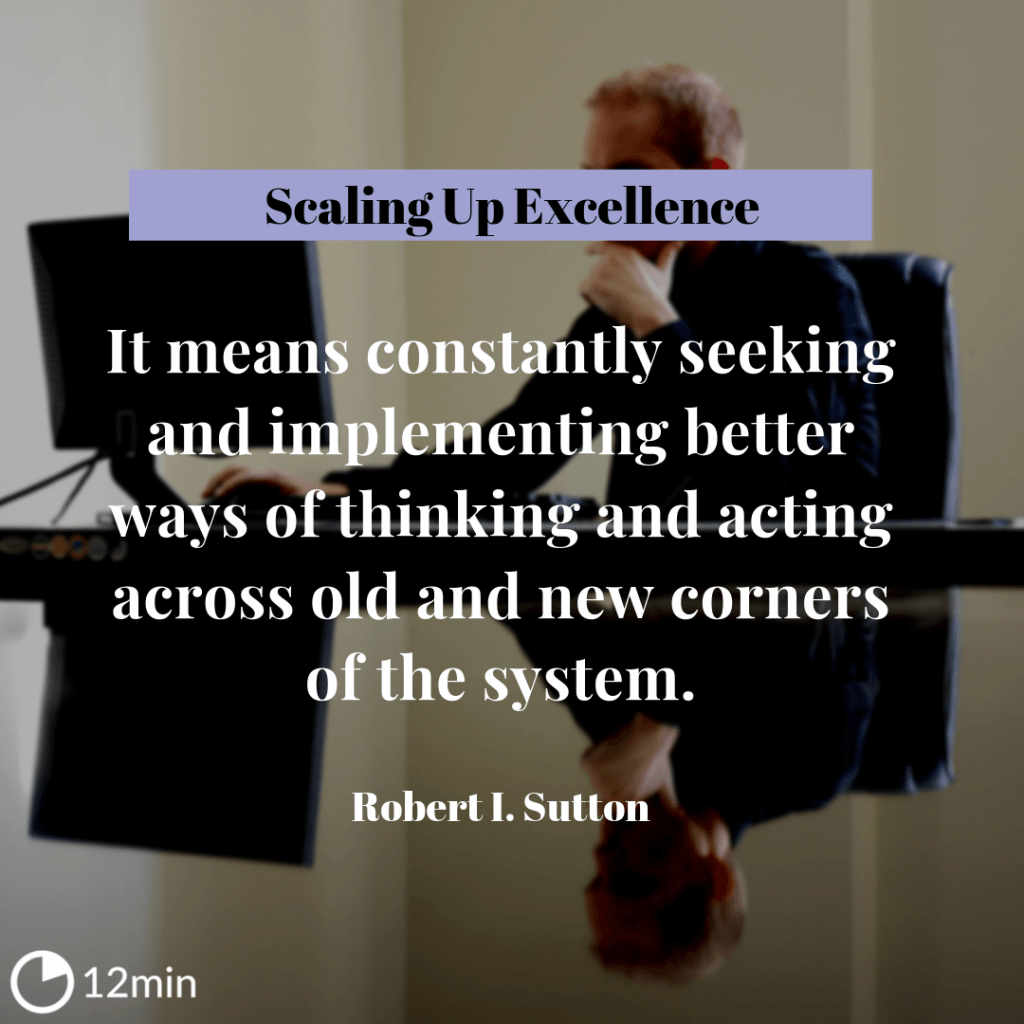Scaling Up Excellence Summary
2 min read ⌚
Scaling Up Excellence‘ is a bestseller that addresses a major challenge faced by high growth companies: growing fast without losing excellence and efficiency. In his book, Robert I. Sutton and Huggy Rao use a variety of case studies, exemplifying their ideas and telling stories of companies that have succeeded or failed to climb.
The authors present their analyzes to help you make the right decisions and climb healthily.
They talk about the difficulties faced by organizations and the challenge of developing a winning business culture. The book goes through strategies to engage existing employees, hire the right people, and many other essentials to achieve true growth in your business. Let’s learn how to scale our companies to the highest standards? Stick with us!
Prop the correct mentality in your organization
Climbing is not just a matter of putting your logo in everywhere. It’s not about growing at high speed, just. To increase your scale, you need to change the way people think, feel, and act. You need to encourage the correct mindset. Only then will you be able to climb your company at high speed without losing your soul.

If you are looking to grow at high speed, you will need effort and determination. For this, you need to generate a profound and lasting desire for change in your employees. Efficient growth needs to make everyone believe and live with a new mindset.
Facebook is an excellent example of this. To get a job on Facebook, engineers need to go through several stages of challenging interviews.
Once they go through all this and are hired, they need to go through six weeks of boot camp, where they perform small tasks going through twelve different departments. It is not uncommon for Facebook’s senior engineers to be removed from their duties to work as mentors to new engineers at boot camp.
[blur]This sometimes delays crucial projects, but it also indicates that Facebook’s continued success is dependent on the people who live and breathe the culture of the company. The boot camp is where new employees learn the culture of Facebook. There are two generic ways, inspired by the great religions, of spreading a mentality in an organization: Catholicism works with replicas. You standardize your systems and get everyone to do the same things in the same way. The ultimate goal is to achieve economies of scale that would otherwise not be feasible. Buddhism works with customization. You allow each unit to choose its approach and use it uniquely. The operation pattern of the procedures is more flexible and allows for local variations, experiments, and customizations. Fortunately, growing up with excellence does not demand that you choose exclusively between the mentality of Catholicism or that of Buddhism. You can instead use both when they make sense. You can achieve a right balance between replicas and customizations and have the best of both approaches. For example, compare the recent efforts of Home Depot and Yum! Entering the Chinese Market: In 2006, Home Depot opened twelve stores in China that were exact clones of American stores. In six years, all the stores closed. Why? Chinese consumers were not raised with a ‘do it yourself’ mentality. If they have money to buy at Home Depot, they have enough to pay someone to do things for them. Despite being successful in the US, Home Depot’s Catholicism approach did not work very well in China.[/blur]Emir is the Head of Marketing at 12min. In his spare time, he loves to meditate and play soccer.






